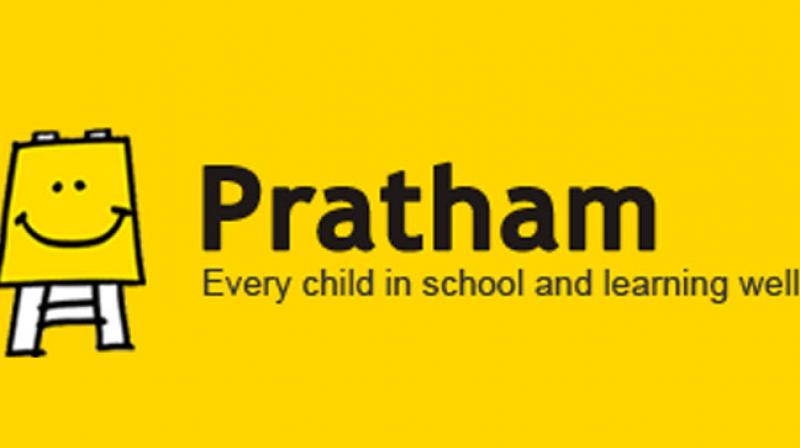The Pratham Method
Roughly 260m children attend school in India, more than in any other country.

'I'm telling you these so-called international schools are the biggest problem: the kids grow up to be apathetic wimps. They think the world owes them a living - they don't appreciate anything.' Tempers were heated, voices were raised and the normally urbane banker and IT honcho were at it with the f's and b's flying around at a frequency more appropriate to a locker-room than a cocktail party for the upper crust. The topic, as any fule kno, was elite schools and their role in educating privileged brats.
Charlie Croker, the real estate moghul in Tom Wolfe's novel 'A Man in Full' totally nailed it with his outburst: "These damned schools were producing a new kind of privileged heir, a boy utterly world-weary by the age of sixteen, cynical, phlegmatic and apathetic around adults, although perfectly responsible and maddeningly polite." Charlie was horrified that his boy was inept at sport, averse to hunting, fishing and riding horses or handling animals in any way. "A boy embarrassed by his advantages and desperate to hide them, eager to dress in ghetto rags and baseball cap worn backward, a boy facing the world without any visible signs of the joy of living" he moaned.
For those of us in the privileged classes with children swaddled in the cocoon of 'elite schools' any form of socializing with the poor is rare; this distance precludes a reality check while leading to a sense of entitlement where we decide what is best for them. Instead perhaps we need to be more empathetic to those who have missed the limo and are condemned to swing from the lower branches of our rickety educational system.
Roughly 260m children attend school in India, more than in any other country. Enrolment has risen steadily in the last two decades thanks to RTE, enacted in 2009, which makes schooling compulsory up to the age of 14. Although our secondary school figures at 69% lag way behind that of China (96%), we can derive some comfort that primary-school enrolment is nearly universal. However, like bikinis, these stats conceal far more than they reveal since our teaching standards are abysmal. "Half of our fifth-grade pupils (ten-year-olds) cannot read and less than a quarter can do simple division. Where we have failed miserably is translating schooling into learning," says Yamini Aiyar of the Centre for Policy Research.
Ms Aiyar may wring her hands in anguish but Modi's new appointee as Chairman of the Indian Council of Historical Research (ICHR), Arvind Jamkhedkar, has hit the ground running with a fascinating paraphrase of Voltaire. The 78 old declared that his mandate was not to dictate history or decide curriculum but to encourage research to facilitate the rewriting of history. "Rewriting is part of the writing of history." Right, that's sorted then, Arvindji: Aurangzeb was a rock fan, Emperor Ashok designed his pillar while playing chess with Caligula and the Taj Mahal was built in memory of Rani Chennamma? Yella ok, tension yakke?
But enough of this low-hanging fruit; there is neither pleasure nor profit to be gained from monkeying around with our dear leader's youthful picks for key positions. Instead let's look at Pratham, the brilliantly innovative organization founded by Madhav Chavan and Farida Lambay. "Modern education in India is often criticized for encouraging rote learning, rather than comprehension, critical thinking, and problem solving. Students spend most of their time memorizing a syllabus with no thought given to learning or playing. Textbook knowledge, rigid ideas, and test scores take precedence over open debates and logical reasoning. Little room is left for creativity to thrive." Nuff said, one can't speak plainer than that!
Having identified the problem, Pratham's founders came up with a bunch of comprehensive solutions. Since most resources and research are directed towards window-dressing by quoting enrolment, dropout rates, teacher-to-student ratios, etc. without addressing the fundamental issue of crappy teaching, they advocate change in government policy to maximize outreach. While the privileged cry themselves hoarse about privatization, they hold the contrarian view that maximal impact can be achieved through government initiatives supported by the muscular intervention provided by institutions such as theirs.
Broadly speaking Pratham uses innovative teaching methods aimed directly at the rural and urban poor while conducting a relentless campaign for institutional change across the country. Impressively their outreach programs "Read India" and CaMal (combined activities for maximized learning) in partnership with the government has directly impacted 4.5 million children across 23 states and Union territories. But these are mere acronyms; what is far more impressive is that only 7% of their revenue goes to fundraising and administration expenses while a solid 93% goes directly into their outstanding tried and proven programs. The best part is they are just a click away for those of you who have the funds but lack the time.

